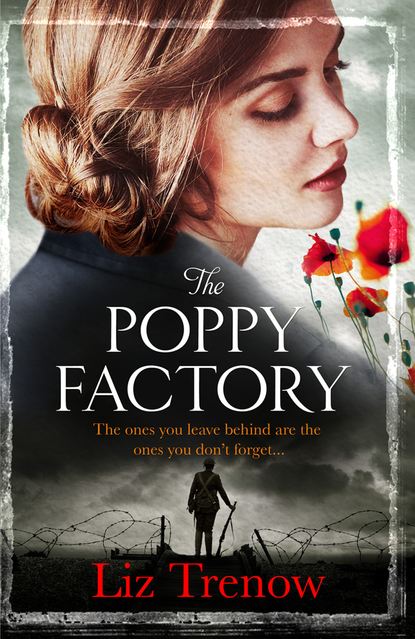По всем вопросам обращайтесь на: info@litportal.ru
(©) 2003-2024.
✖
The Poppy Factory
Настройки чтения
Размер шрифта
Высота строк
Поля
‘ENOUGH, Jess,’ Nate bellowed, grabbing her by the arm and pulling her away, down the corridor into the bedroom, and throwing her roughly onto the bed. Shocked by his strength, she offered no resistance and she fell like a rag doll, arms and legs akimbo. The bed was still warm from Matt’s girlfriend, who had disappeared. There were groaning noises coming from the bathroom. Nate slammed the door behind him but a moment later it reopened and Vorny was by her side.
‘Christ, Jess, whatever happened there? You certainly know how to blow it, don’t you?’
‘He deserved it. The idiot.’ Her anger was cooling now.
‘You’re not wrong, but you shouldn’t call your boyfriend’s boss a “pathetic, clever-dick know-it-all”, however much he deserves it.’
‘His boss? That was the other woman, the tall one, Mary.’
‘No, Matt’s his boss. Mary’s the maths teacher.’
Icy fear replaced the vestiges of her fury. ‘That little fat man’s the head of sports? You’re quite sure?’
‘’Fraid so.’ Vorny shook her head. ‘I was talking to him earlier. About how he rates Nate, what a great asset he is. How well the football team’s been doing under his training.’
‘Bloody hell. I’ve blown it, haven’t I?’
‘You’ve got some serious apologising to do, that’s for sure.’
It would take a lot more than that, Jess knew.
She tried to apologise but Nate refused to discuss anything that evening, and when she offered to clear up he told her sharply that he didn’t need any help, thank you, and she should go to bed before she caused any more damage. He’d sleep on the sofa. End of story.
In the morning she reached across the bed for him before remembering, with a wave of self-disgust, what had happened. She found him already at work on the dining table, marking school books.
‘Nate, I am so, so sorry about last night.’ She moved behind him and stroked the back of his neck – his weak spot.
He swatted her hand away and swivelled round, his face fiercer than she’d ever seen before. No wonder he makes a good teacher, she found herself thinking, he must be utterly terrifying to the kids.
‘I think you’d better sit down,’ he said.
‘I’m going to make a coffee.’ Her mouth was dry, her stomach turning somersaults. ‘Do you want one?’
He shook his head and turned back to his marking. She boiled the kettle and made a mug of strong black instant, then went to sit at the table, facing him.
‘Okay. Let me say my piece first, please?’
He looked up and nodded, his face impassive, his eyes coal black.
‘What I said last night was completely out of order,’ she started. ‘I don’t know what got into me. It felt as though he was attacking everything I stand for, the reason why James and all those others have died. I just lost it, and the words came out without thinking. I am really, really sorry.’ She looked back at his stony expression and felt tears burning the back of her eyes. ‘Please forgive me, Nate. I can work through this and get better. I love you.’
He sighed wearily. ‘I’ve been doing a lot of thinking. All night, as it happens. This is the conclusion I’ve come to: I can’t deal with it any more, Jess. The drinking, the anger, all that. You’ve turned into someone I don’t recognise.’
‘I know. I’m sorry.’
‘You keep saying you’re sorry, but what have you done about it?’
‘I didn’t drink all last week.’
‘And when you did, look what happened. What I’m sorry about, Jess, is that I’ve stopped believing that you want to change. When you’ve sorted yourself out, rediscovered the old Jess, then get in touch.’
She managed an aghast, ‘Are you telling me it’s over?’
He nodded, but could not meet her eyes. ‘Till you get yourself sorted, yes.’
She just had time to say, ‘You don’t mean it? Just like that?’ and hear his retort, ‘I do, Jess. I really mean it, just like that,’ before the nausea hit her. When she finally emerged from the bathroom, Nate didn’t even raise his head. ‘When you feel better, please pack and leave,’ he said. ‘I’ve got work to do today.’
‘But …’
He held up a hand, like a policeman stopping traffic. ‘Please, I don’t want to talk about it. I’ve told you what I think and I’m not going to have another row. Don’t make it more painful than it is already. Just go.’
Once she’d packed she tried again: pleading and trying to reason. But he was immovable. ‘I’ve made up my mind,’ was all he would say.
In the face of this resistance and his complete unwillingness to talk or compromise, Jess’s anger returned in full flood; the red behind the eyes, the heat at the back of the neck. She wanted to hit him but, as if sensing it, he stood and faced her at full height.
There was nothing else she could do.
‘You bastard,’ she shouted, before slamming the door.
Only when she got back to the safety and privacy of the barracks did she allow herself to weep, with burning, desperate rasps that seemed as though they would never stop. She texted Nate with abject apologies, but there was no response. She cursed herself over and over again: she had never loved anyone the way she loved this man, never trusted anyone so much, never fancied anyone in the way she fancied him, never met anyone else that she’d consider spending her life with. And now, for the sake of a few drinks, she had thrown it all away.
Without Nate, life felt bereft of all meaning, all anticipation, all joy.
Chapter Three (#u1b060469-86bc-5910-b283-ab87400613d0)
The next few weeks passed in an alcoholic haze. She averted her eyes from mirrors and hurried past shop windows to avoid seeing the dark rings shadowing the eyes in her haggard face, the hunched shoulders and gaunt frame, a woman looking old before her time. She persuaded a mate, a doctor, to prescribe tranquillisers and even, at Vorny’s insistence, got herself referred for counselling, but bottled it at the last minute.
‘I can’t sit there like an idiot, whining about losing the love of my life,’ she admitted, ‘when I know perfectly well what I need to do.’
No-one except Vorny knew what had happened with Nate. When her mother inquired, she fobbed her off, saying they were both so busy it was hard to find enough time together. She would manage without drinking for a few days and then, buoyed by her own success, would call or text to tell him the good news. But when he failed to respond, yet again, her resolve weakened.
‘What’s the point in punishing myself even further, when he clearly doesn’t want me, whatever I do?’ she’d say to herself, pouring an extra large glass.
Nothing could cheer her. The days were lengthening, the sun gaining in warmth; the bare branches of the trees on the garrison had taken on a green tinge and would soon be in bud. Swathes of acid yellow daffodils cloaked the town’s roundabouts, but the arrival of springtime made her feel even gloomier. She should have been looking forward to her new life. Instead here she was, single again, spending most evenings locked in her barrack room with a bottle, unable to face the world.
She dreaded her discharge from the Army. Without Nate, her life already felt empty and meaningless, and now she would be saying goodbye to the friends who had come to feel like family. She even, half-heartedly, considered asking to cancel the discharge, but was too proud to admit that it might have been a mistake, and the moment drew inexorably closer. Finally, the day of the dreaded leaving party arrived. Jess drank so heavily throughout the afternoon and early evening that she could remember nothing after about nine o’clock and, the following day, discovered scrapes and bruises all over her body including a blackening eye. She couldn’t bear to ask Vorny what had happened. It took a full forty-eight hours to recover from the hangover, and she felt disgusted with herself.
Then, all in one week, three good things happened.
Firstly, she noticed that the tranquillisers had finally kicked in; she felt calmer than she had in months, if a little light-headed and distanced from reality. She tried to cut down her drinking, restricting it to the evenings. The nightmares seemed to have become more sporadic, and less intense. Looking back, she realised that she hadn’t experienced the red rush of anger for nearly a fortnight. Even Vorny noticed she seemed happier: ‘You’d better watch out, I might catch you laughing,’ she’d joked.
On Tuesday, it was confirmed that Vorny and another medic, Hatts, who were both staying in the Army, would be stationed in the town for at least the next six months. This meant that the three of them could move out of the barracks and rent a place together. By seven o’clock the following evening they’d found the perfect place – a small Victorian terraced house within walking distance of the garrison medical centre – and were celebrating in the pub just around the corner, a proper old-school bar with wooden floors and sticky tables, yellowing jars of pickled eggs and some dusty packets of pork scratchings the only food on offer. The décor of the house was old fashioned and rather worn, but the beds were comfortable, the kitchen clean and modern. They moved in the next day.
On Thursday she rang the local ambulance service to see whether they had any vacancies and they invited her to sit a pre-entry exam. She spent the weekend frantically boning up on current NHS techniques, and it seemed to work because they phoned to offer her a job the following day. She would start as an Emergency Care Assistant for the first three months before sitting her paramedic exams again, because they were concerned that her knowledge was three years out of date. It was less money, but in some ways a relief not to be given the full responsibilities on day one.
Her first few shifts went by in a daze of new faces and an encyclopaedia of things to remember, but her NHS colleagues were so friendly and welcoming she wondered why she’d ever felt nervous. They were intrigued to learn about her Afghanistan experiences, especially the technical aspects of managing major trauma, bleeds and limb injuries using only equipment that could be carried in back packs. She basked in the warmth of their interest and admiration and relished sharing her experience with people who genuinely understood and were keen to learn.
One evening she found herself on a shift with Janine, an air force reservist who’d spent three months on the helicopters bringing in casualties to Camp Bastion. In brief moments of respite they shared stories of life in the desert, gaining a perspective they’d never seen before. Jess had thought the MERT crews brave and dedicated, but superior in attitude and she’d felt an almost visceral envy of the fact that they were going back for a cold shower each evening.







